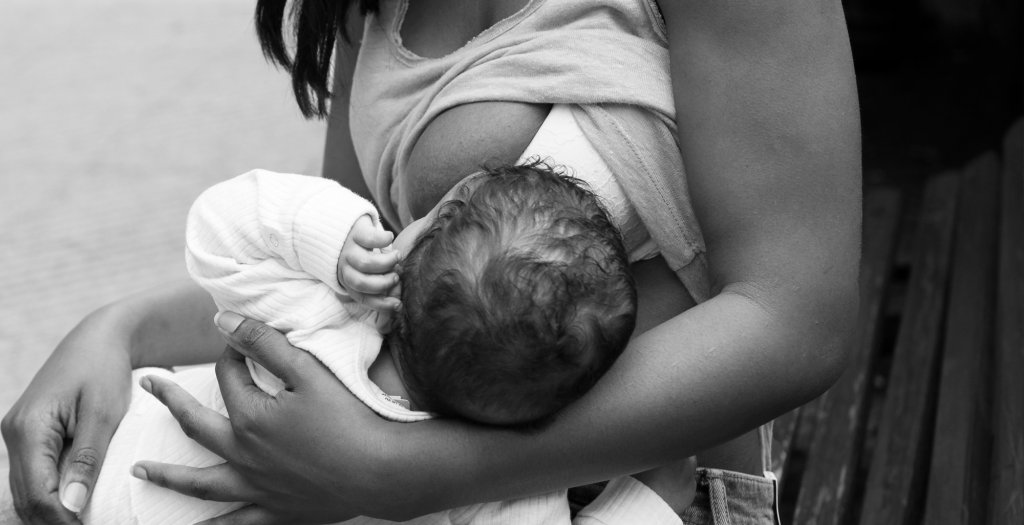Breastfeeding is intricately connected to numerous Sustainable Development Goals (SDGs), making it a vital factor in fostering a healthier population and promoting a more sustainable environment. However, our society still grapples with issues of gender inequality, which often hinder women from making crucial life decisions, including their choices about breastfeeding.
World Breastfeeding Week holds immense significance in highlighting the critical link between empowering women in the workplace and fostering a sustainable future. The 2023 World Breastfeeding Week theme ‘Let’s make breastfeeding and work, work!’ emphasises this connection and sheds light on the potential economic benefits of increased breastfeeding.
Why breastfeed?
Breastfeeding is a powerful practice with far-reaching implications for individuals and the environment. Breast milk provides a unique combination of essential nutrients, antibodies, and enzymes for babies, promoting optimal growth, immunity, and brain development. It establishes a strong foundation for lifelong health and well-being.
Embracing the 2023 theme of World Breastfeeding Week, ‘Let’s make breastfeeding and work, work!’, normalising breastfeeding extends beyond safeguarding the well-being of babies and women; it represents a logical and essential step towards building a healthier population and ensuring sustainability. Breastfeeding’s impact is holistic, offering benefits that extend to the planet by reducing our carbon footprint and fostering a more equitable society through embracing gender equality.

Breastfeeding and work works
SDG 5 places a vital emphasis on achieving gender equality; in this context, work becomes a significant obstacle for women when choosing to breastfeed. The challenge arises from the dilemma women face, torn between providing the best nutrition for their babies and the stigma associated with the workplace, including issues like inadequate maternity leave and uncertainty about their employment status.
According to the Federal Ministry of Health, only 9% of organisations in Nigeria have a workplace breastfeeding policy. A National Maternity Assessment Survey in 2019 shows only 1.5% of the public sector and 23% of private sector organisations provide creches or daycare (2019). By increasing the support and resources for breastfeeding, women have autonomy over critical life decisions.
A healthier population
In Nigeria, a staggering 71% of infants are deprived of the advantages of breast milk during their crucial formative years, with only 29% of infants aged 0 to 6 months being exclusively breastfed. This alarming situation has led to a significant rise in mortality rates among both mothers and children. However, the simple yet vital act of breastfeeding can transform the entire population’s health.
According to UNICEF, its impact is far-reaching, saving the lives of more than 820,000 children under five and preventing approximately 20,000 women from succumbing to breast cancer annually. Embracing breastfeeding not only ensures a healthier future for our children but also safeguards the well-being of mothers, making it a critical component in building a resilient and thriving population.
Minimal ecological footprint
Breastfeeding significantly reduces our ecological footprint as it operates independently of any industry. In contrast, the reliance on baby food in Nigeria alone is projected to cost approximately $475.50 million for mothers. By embracing breastfeeding, we curtail the need for energy-intensive production and distribution processes, thus minimising our environmental impact. Not only does breastfeeding help in preserving natural resources, but it also remains the safest and most cost-effective source of nutrition for babies.
Furthermore, the economic benefits are substantial, contributing to a staggering additional income of US$302 billion annually. This aligns with several vital SDGs, including Goals 1, 8, and 10, which focus on ending poverty, promoting economic growth, and reducing inequalities. By recognising and supporting the value of breastfeeding, we foster a healthier and more sustainable environment and unlock economic opportunities that can contribute to a more prosperous and equitable world.

Making breastfeeding work
Creating a supportive and inclusive space for women to breastfeed at work comfortably is an ethical imperative and a strategic move with far-reaching implications. The potential additional income of US$302 billion annually from increased breastfeeding highlights the economic benefits that can be harnessed by enabling women to balance their professional and maternal roles seamlessly. By embracing breastfeeding-friendly policies and providing adequate facilities, we not only capture the goals of ending poverty, promoting economic growth, and reducing inequalities (Goals 1, 8, and 10) but also foster a healthier population and a more sustainable future.
Empowering women in the workplace to breastfeed not only benefits individual families but also contributes to the well-being of society at large. Breastfeeding significantly reduces the ecological footprint by eliminating the need for energy-intensive baby food production and distribution, making it an environmentally friendly choice. Additionally, it profoundly impacts infant and maternal health, saving lives and promoting better health outcomes for mothers and children.
Supporting breastfeeding in the workplace is a pivotal step towards gender equality. It challenges traditional norms that hinder women from making critical life decisions and ensures they can participate fully and equally in their careers and family life.
By embracing and actively supporting breastfeeding at work, we send a powerful message about the importance of women’s health, well-being, and rights. Investing in breastfeeding-friendly initiatives benefits the current generation and lays the groundwork for a healthier and more equitable future for future generations.
In this journey towards a more sustainable and prosperous world, let us recognise that creating space for women to breastfeed at work comfortably is not only an investment in the well-being of families but also a step towards achieving the Sustainable Development Goals and building a more inclusive, resilient, and compassionate society.

